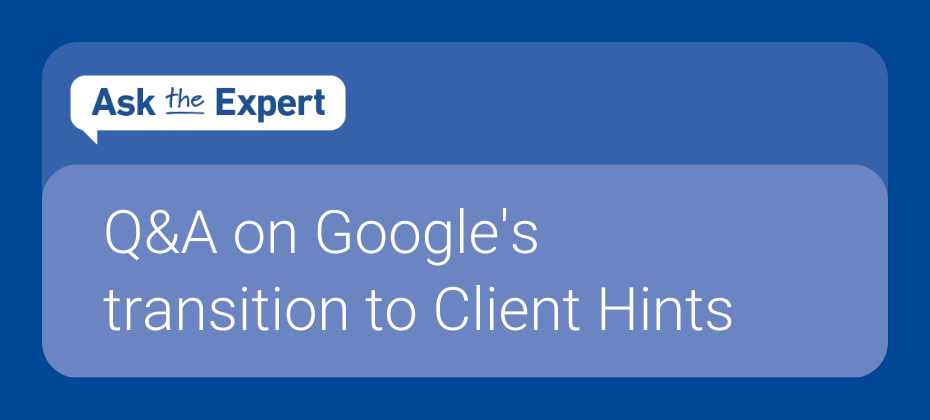At A Glance
AI learns what your data teaches in 2025, "good data" in AI means accurate, current, consented, and easy to connect, or your models lose relevance and your investments underperform. Experian is leading this next era of responsible data where trust, transparency, and innovation come together to make marketing more human, not less.What makes data “good” in the age of AI?
In AI-driven marketing, data quality now defines success. “Good data” in AI isn’t about volume; it’s about the balance of accuracy, freshness, consent, and interoperability. As algorithms guide decisions, they must learn from data that’s both accurate and ethical.
At Experian, we believe good data must meet four conditions:
This is the data AI can trust and the data that keeps marketing relevant, predictive, and privacy-first.
Why does data accuracy matter more than ever?
AI models are only as intelligent as their inputs. Incomplete or inconsistent data leads to bad predictions and wasted spend. As the industry moves toward agentic advertising, where autonomous systems handle campaign buying and optimization, data accuracy becomes even more critical. If your ad server or audience data is flawed, these new AI agents will simply automate bad decisions faster.
Experian applies rigorous quality filters and conflict resolution rules to ensure our data is both deterministic and accurate. Deterministic signals alone don’t guarantee accuracy; they must be verified, deduplicated, and contextualized. Our identity resolution process anchors every attribute to real people, giving brands and platforms the confidence that every insight stems from truth, not noise.

Our data is ranked #1 in accuracy by Truthset, giving our clients confidence that every decision they make is backed by the industry’s most reliable insights.
Just because it is deterministic, doesn’t mean it’s highly accurate. You still need to refine and validate your data to make sure it tells a consistent story. You need to anchor your data around real people.
Why does AI need fresh data?
Outdated data can’t predict tomorrow’s behavior. AI thrives on recency.
At Experian, our audiences are refreshed continuously to mirror real-world signals, from purchase intent to media habits, so every campaign reflects what’s happening now, not six months ago.
And we don’t just advocate for fresh data, we rely on it ourselves. Our own AI-powered models, used across our audience and identity platforms, are continuously retrained on the most current, consented signals. This allows us to see firsthand how freshness drives better accuracy, faster optimization cycles, and more relevant outcomes.
But freshness alone isn’t enough. With predictive insights, our models go beyond describing the past. They forecast behaviors, fill gaps with inferred attributes, and recommend next-best audiences, helping you anticipate opportunity before it happens.
Fresh and predictive data means you’re reaching people in the moment that matters and shaping what comes next. With AI, that’s what defines performance.
How do consent and governance build trust in AI?
Responsible AI starts with responsible data. With 20 U.S. states now enforcing privacy laws, data compliance isn’t optional, it’s operational.
At Experian, privacy and compliance are built in. Every data signal, attribute, audience, and partner goes through our rigorous review process to meet federal, state, and local consumer privacy laws. With decades of experience in highly regulated industries, we’ve built processes that emphasize risk mitigation, transparency, and accountability.

Governance isn’t just about regulation, it’s also about innovation done right. We drive transparent and responsible innovation through safe, modular experimentation, from generative applications to agentic workflows. By balancing bold ideas with ethical guardrails and staying ahead of evolving legislation, we ensure our innovations protect consumers, brands, and the broader ecosystem while moving the industry forward responsibly.
Compliance and governance aren’t just boxes to check; they’re the foundation that gives AI its license to operate.
How does interoperability enable AI’s full potential?
AI delivers its best insights when data connects seamlessly across fragmented environments. Our signal-agnostic identity spine allows data to move securely between platforms (connected TV, retail media networks, and demand-side platforms) without losing context or compliance.

Interoperability isn’t just about moving data between systems; it’s about connecting insights across them. When signals connect across environments, AI gains a more complete view of the customer journey revealing true behavior patterns, intent signals, and cross-channel impact that would otherwise remain hidden.
This unified perspective allows AI to connect insights in real time, improving predictions, performance, and personalization while protecting privacy.
Where do AI and human oversight meet?
AI can make marketing more predictive, but people make it meaningful. At Experian, our technology brings identity, insight, and generative intelligence together so brands, agencies, and platforms can reach the right people with relevance, respect, and simplicity.

Our AI-powered models surface connections, recommend audiences, and uncover insights that would take humans months to find. But our experts shape the process, crafting the right inputs, ensuring data quality, reviewing model outputs, and refining recommendations based on industry knowledge and client goals. It’s this partnership between advanced AI and experienced people that turns predictions into actionable, trustworthy solutions.
What “good data” looks like in action
“Good data” becomes most powerful when it’s put to work. At Experian, our marketing data and identity solutions help brands and their partners connect accurate, consented, and interoperable data across the ecosystem, turning insight into measurable outcomes.
When Windstar Cruises and their agency partner MMGY set out to connect digital media spend to real-world bookings, they turned to Experian’s marketing data and identity solutions to close the attribution loop. By deploying pixels across digital placements and using Experian’s identity graph to connect ad exposure data with reservation records, we created a closed-loop attribution system that revealed the full traveler journey, from impression to confirmed booking.
The results were clear: 6,500+ bookings directly tied to digital campaigns, representing more than $20 million in revenue, with a 13:1 ROAS and $236 average cost per booking. Attributed audiences booked $500 higher on average, and MMGY’s Terminal audience segments powered by Experian data achieved a 28:1 ROAS.
This collaboration shows that responsible, high-quality data and AI-driven insights don’t just tell a better story; they deliver measurable business performance.
Why the future of AI depends on “good” data
The next phase of AI-driven marketing won’t be defined by who has the most data, but by who has the best. Leaders will:
AI success starts with good data. And good data starts with Experian, where accuracy, privacy, and purpose come together to make marketing more human, not less.
Partner with Experian for AI you can trust
About the author

Budi Tanzi
VP, Product, Experian
Budi Tanzi is the Vice President of Product at Experian Marketing Services, overseeing all identity products. Prior to joining Experian, Budi worked at various stakeholders of the ad-tech ecosystem, such as Tapad, Sizmek, and StrikeAd. During his career, he held leadership roles in both Product Management and Solution Engineering. Budi has been living in New York for almost 11 years and enjoys being outdoors as well as sailing around NYC whenever possible.
“Good” data in AI FAQs
At Experian, we define “good data” as the balance of accuracy, consent, freshness, and interoperability. We apply rigorous governance, validation, and cleansing across every signal to ensure that AI systems learn from real-time behaviors, not assumptions. This approach turns data into a foundation for reliable, ethical, and high-performing intelligence.
Experian ensures AI-ready data accuracy through advanced cleansing, conflict resolution, and human anchoring. Experian ensures AI models rely on verified, high-quality inputs. Experian’s data is ranked #1 in accuracy by Truthset.
Yes, Experian can help brands stay compliant with privacy laws. Experian’s privacy-first governance framework integrates ongoing audits, legal oversight, and consent management to ensure compliance with all federal, state, and global privacy laws. Compliance isn’t an afterthought; it’s embedded in every step of our data lifecycle.
Experian makes AI more human by pairing innovation with human oversight to ensure AI helps marketers understand people, not just profiles. At Experian, we believe the future of marketing is intelligent, respectful, and human-centered. AI has long been part of how we help brands connect identity, behavior, and context to deliver personalization that balances privacy with performance. Our AI-powered solutions combine predictive insight, real-time intelligence, and responsible automation to make every interaction more relevant and ethical.
Marketers can activate Experian’s high-quality data directly in Experian’s Audience Engine, or on-the-shelf of our platform partners where Experian Audiences are ready to activate. Built on trusted identity data and enhanced with partner insights, it’s where accuracy meets accessibility, helping brands power campaigns with confidence across every channel.
Latest posts

Super Users are a subset of customers who can have an influential impact on ROI. Find out how to target them for a successful marketing targeting strategy.

As browsers phase out support for third-party cookies, contextual advertising offers an innovative solution to reach your target audience.

Google is replacing User-Agents with Client Hints across their Chromium browsers. Learn what this change means and how it impacts OpenRTB in our Q&A.